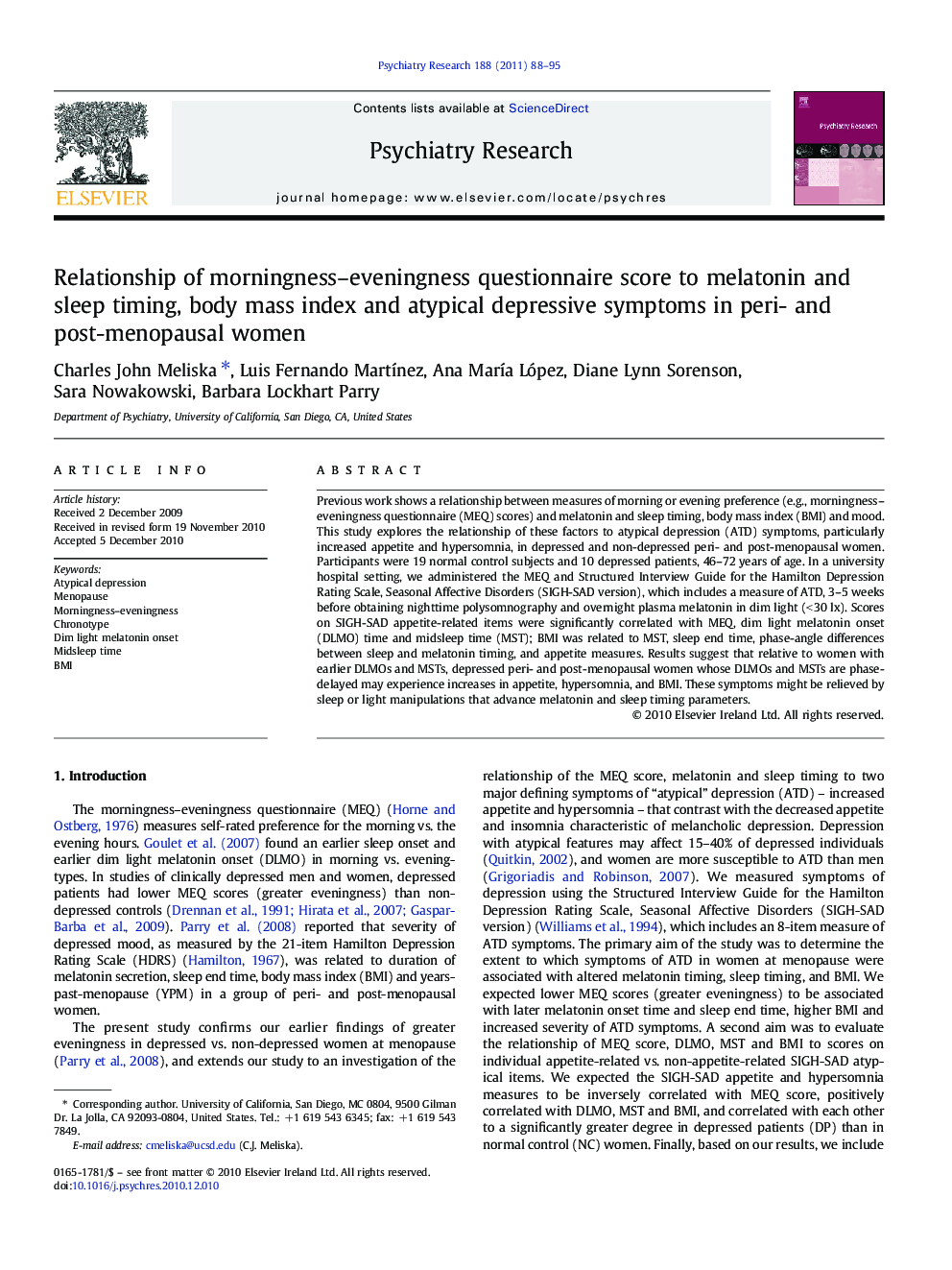| Article ID | Journal | Published Year | Pages | File Type |
|---|---|---|---|---|
| 10303428 | Psychiatry Research | 2011 | 8 Pages |
Abstract
Previous work shows a relationship between measures of morning or evening preference (e.g., morningness-eveningness questionnaire (MEQ) scores) and melatonin and sleep timing, body mass index (BMI) and mood. This study explores the relationship of these factors to atypical depression (ATD) symptoms, particularly increased appetite and hypersomnia, in depressed and non-depressed peri- and post-menopausal women. Participants were 19 normal control subjects and 10 depressed patients, 46-72Â years of age. In a university hospital setting, we administered the MEQ and Structured Interview Guide for the Hamilton Depression Rating Scale, Seasonal Affective Disorders (SIGH-SAD version), which includes a measure of ATD, 3-5Â weeks before obtaining nighttime polysomnography and overnight plasma melatonin in dim light (<Â 30Â lx). Scores on SIGH-SAD appetite-related items were significantly correlated with MEQ, dim light melatonin onset (DLMO) time and midsleep time (MST); BMI was related to MST, sleep end time, phase-angle differences between sleep and melatonin timing, and appetite measures. Results suggest that relative to women with earlier DLMOs and MSTs, depressed peri- and post-menopausal women whose DLMOs and MSTs are phase-delayed may experience increases in appetite, hypersomnia, and BMI. These symptoms might be relieved by sleep or light manipulations that advance melatonin and sleep timing parameters.
Related Topics
Life Sciences
Neuroscience
Biological Psychiatry
Authors
Charles John Meliska, Luis Fernando MartÃnez, Ana MarÃa López, Diane Lynn Sorenson, Sara Nowakowski, Barbara Lockhart Parry,
